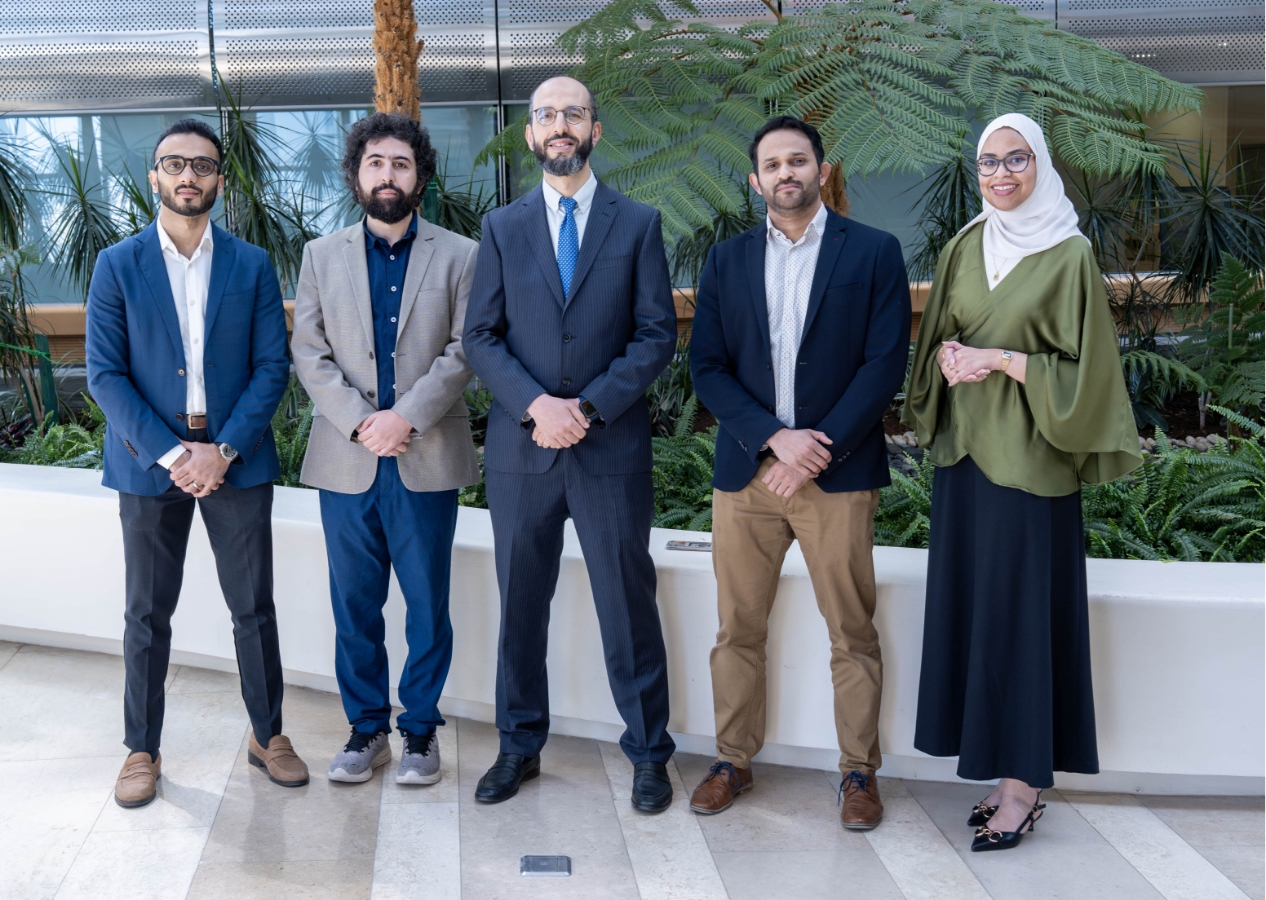Sidra Medicine Study Pioneers Genome Assembly Approach for Rare Disease Research

Study establishes near-complete Middle Eastern genome references, refining the mapping of genetic variation and resolving diagnosis
5 May 2025, Doha, Qatar – Researchers at Sidra Medicine, a member of Qatar Foundation, have led a landmark study, published in Nature Genetics, unlocking the genetic causes of difficult-to-resolve rare diseases from diverse Middle Eastern populations.
The study entitled ‘Near-complete Middle Eastern genomes refine autozygosity and enhance disease-causing and population-specific variant discovery’ leverages state-of-the-art de novo genome assembly and long-read sequencing. It also provides a crucial reference resource for precision medicine and population genetics, seeking to address critical gaps in global genomic studies.
De novo genome assembly is a sophisticated computational technique that constructs entire genetic sequences from scratch rather than relying on pre-existing genome references. By using cutting-edge long-read sequencing technology, which reads large sections of DNA without fragmentation, Sidra Medicine’s study delivers the first genome maps with unprecedented completeness and accuracy from the region. The approach enhances the identification of both disease-causing mutations and natural genetic variation.

Prof. Younes Mokrab, Head of Medical and Population Genomics and Director of the Neuroscience Research Program at Sidra Medicine, who led the study said: “We used long-read sequencing to gain deep insights into the genomes of Middle Eastern families affected by rare diseases, proving that de novo assembly can uncover pathogenic variants that have remained elusive for years. We also provide a valuable genome reference for the region. This is a game-changer for precision medicine in the region, ensuring that our populations are no longer overlooked in genomic research.”
The study characterized six Middle Eastern families from Qatar, Sudan, Jordan, Syria and Afghanistan, affected by previously unresolved neurodevelopmental disorders. This resulted in one of the region’s most refined genomic datasets to date. The high-quality, phased genome assemblies obtained, involving fully mapped maternal and paternal DNA sequences, serve as a critical resource for improving clinical diagnostics and advancing rare disease research.
Prof. Evan Eichler, Professor of Genome Sciences at the University of Washington, USA and co-author of the study, added: “The study is exciting because it works toward understanding the full spectrum of genetic variants underlying disease which will be important for both pathogenic variant discovery and understanding patient phenotypic variability. The approach represents the future of clinical research. Every family with an unsolved case of developmental delay deserves this type of workup.”
Despite advances in human genetics, many populations are still underrepresented in existing genome references. Sidra Medicine’s study highlights the effectiveness of long-read sequencing in creating accurate genome assemblies, which can improve the identification of disease-causing mutations and enhance ancestry-informed analyses.
Prof. Khalid A. Fakhro, Chief Research Officer at Sidra Medicine and co-author, said: “Sidra Medicine has led regional advancements in genomic research for over a decade. Our latest findings demonstrate that cutting-edge long-read sequencing technologies are becoming an essential tool for genetic discovery and precision medicine. The ability to identify disease-causing variants previously missed in standard genome references is a major breakthrough for clinical genomics.”
The study’s novel genetic sequences will also contribute to understanding human migration and Middle Eastern population structure, offering insights into evolutionary and anthropological research.
Dr. Hamdi Mbarak, Director of Research and Partnerships at Qatar Precision Health Institute, said: “As we release a new cohort of over 25,000 whole genomes from Qatar, the arrival of high-quality genome references tailored to Middle Eastern ancestries is both timely and critical. This will help us elucidate population-specific genetic variation and its impact on health and disease.”
Prof. Mokrab concluded: “Our next goal as a community is to expand Middle Eastern genome references to fully capture the genetic diversity of the region, making use of joint efforts and optimized resources. Also, we need to integrate Middle Eastern genomes into global pangenome initiatives in a concerted manner. We look forward to continuing our collaborations and partnerships with regional and international counterparts in this vital area, to maximize the impact of our collective genomic research on a global scale.”
Supported by Sidra Medicine, the Qatar Genome Programme, and the Qatar National Research Fund, the study highlights the institution’s commitment to driving innovation in precision medicine and improving healthcare outcomes. For more details about Sidra Medicine’s research, please visit: https://www.sidra.org/research. To read the full study, click here.








